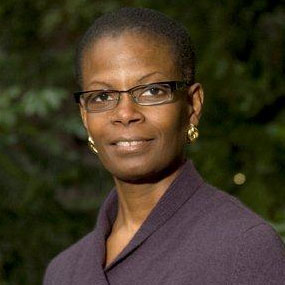Research Affiliates
In addition to the Mel King Community Fellows program, CoLab hosts a diverse group of scholars, leaders, and community activists who are focused on planning issues related to CoLab’s core mission and values.

Anya Brickman Raredon
Anya Brickman Raredon joins CoLab as an affiliated researcher for initiatives related to shared wealth generation, and programs on post-disaster recovery and rebuilding.
Anya is a consultant and project manager for urban and housing-focused community development initiatives. She has a deep interest in how physical space reflects and informs social discourse which has developed from her studies in city planning, architecture, anthropology and dance. Since January of 2010 she has been involved in research and development of community-based reconstruction strategies in post-earthquake Haiti through partnerships with MIT SA+P, MIT CoLab, Harvard GSD, and Oxfam America.
As a Global Field Associate at the Affordable Housing Institute (AHI), Anya directs projects in the formalization and redevelopment of post-disaster urban areas, including extensive activity in Port-au-Prince, Haiti. Additionally, Anya works on AHI's connections and collaborations with universities to encourage the development of a network to link theory and practice on the connections between informality and formality in post-disaster redevelopment. Other projects of note in the Latin American and Caribbean region include; an action-research project on food supply chains & transportation planning in Cartagena, Colombia, research on informal settlements in Lima, Peru, and a proposal for culturally and environmentally appropriate low-income housing in western Honduras. Anya received a Masters in City Planning from MIT in 2011, and her thesis “Opportunity in Haiti: Women as Agents of Resilience” was published in the online Gender and Disaster Sourcebook. She received her B.A. from Yale in 2004 with Honors in Architecture, and has worked as a project manager for a sustainable architecture firm in Vermont, and a custom, high-end architectural fabrication firm in Western Massachusetts that is owned by her family.

Becky Buell
Becky is a specialist in strategy, innovation and inclusive enterprise development. Her work with CoLab explores the wealth creation potential of emerging “green” markets in cities around the world. Her research focus has been in the areas of clean energy, urban food systems and sustainable waste management. She worked with Oxfam GB for over 15 years in various senior management positions, most recently as Oxfam’s Senior Advisor for Strategy and Innovation, working with the board and directors on overall organizational direction and development, and managing a portfolio of projects, primarily relating to cross-sector collaboration on climate change, renewable energy, and sustainable supply chains.
In addition to her work with CoLab, Becky is co-founder of Meteos, a non-profit company established to facilitate cross-industry dialogue and innovation with a focus on sustainability and social inclusion. Becky advises a number of NGO boards on strategy, and provides coaching and facilitation to senior executives and teams. Becky was an MIT Sloan School ELIAS Fellow in 2006-7, holds a MA in Latin American Studies from Stanford University and a post-graduate certificate in Urban Planning from University College of London. She is a Board member of Just Energy, a social enterprise supporting community-based renewable energy enterprise.

Zahir Dossa
Zahir Dossa is an entrepreneur and academic passionate about sustainability from a strategic management and organizational behavior perspective. His primary research assesses sustainability through an abundance, or positive, approach whereby he positions sustainable practices as those that are positively different from the ethical norm.
Zahir holds a PhD in sustainable development from MIT, where he previously earned an MEng in computer science, a B.S. in management, and a B.S. in computer science. He founded a women's cooperative in Morocco and went on to start The Argan Tree and Argania. He recently co-founded Pixineo.

Katya Fels Smyth
Katya Fels Smyth is Founder and CEO of the Full Frame Initiative (FFI). She has over two decades of experience in program development, evaluation, system change and community networking to address the intersection of poverty, violence and societal disinvestment. Prior to launching FFI in 2007, Katya founded and led On The Rise, Inc., a Cambridge-based organization providing innovative and effective support and community to the area’s most disenfranchised women. In her 11 years at On The Rise, the organization helped over 1,000 women achieve new levels of safety and personal agency. Significantly, she also helped change community dialogue about who “can” be helped and systemic responses to women with trauma histories not seeking traditional trauma services. A former Echoing Green Fellow and recipient of several other social entrepreneurship awards and fellowships, Katya speaks, publishes and provides consultation nationally on the design, implementation, and evaluation of programs that work at the intersection of entrenched poverty, violence and trauma. She has participated in international training efforts for domestic violence advocates, is supporting a statewide juvenile justice reform effort in Missouri, and is working on state-level projects in Massachusetts and California. She was as a Research Fellow at the Malcolm Wiener Center for Social Policy at Harvard’s Kennedy School of Government and is a member of the Massachusetts Governor’s Council to Address Sexual and Domestic Violence.
Katya holds an AB with honors in Biology from Harvard and received an honorary Doctorate of Divinity from the Episcopal Divinity School.

Katrin Kaeufer
Dr. Katrin Kaeufer leads a research effort on “Banking as if People Mattered”. She conducts case studies on value-based banks and support the Global Alliance for Banking on Values in their efforts to build a global network of value-based banks. Katrin is also the research director of the Presencing Institute, a Cambridge-based network of change makers focused on advancing social technologies of transformation and change.
Kaeufer earned her MBA and Ph.D. from Witten/Herdecke University in Germany. Her dissertation on Socially Responsible Banking was published as a book in 1996. While working with peace researcher Johan Galtung, she co-founded and directed "Peace Studies Around the World," a year-long global studies program. She has consulted with a global pharmaceutical company, the World Bank, a learning network of small and mid-sized companies and non-profit organizations, as well as with the United Nations Development Program in New York. She is also a founding member of the Presencing Institute.

Lily Song
Lily is an urban planning researcher and practitioner with a background in community organizing and policy advocacy. Her areas of interest include urban justice, sustainability, and livability; alternative local economic and workforce development; and shared value creation efforts among civil society, public sector, and private sector actors. Lily holds a PhD in Urban and Regional Planning from MIT; Master's in Urban Planning from UCLA; and BA in Ethnic Studies with a Minor in Business Administration from UC Berkeley. She is currently residing in Singapore, where she is conducting research on urban inequality, formalization of street vending, and urban governance challenges facing rapidly growing "secondary cities" in the greater Southeast Asian region.

Lynn Todman
Lynn Todman’s work examines the ways in which social structures systematically marginalize low income urban communities from critical rights, resources, and opportunities.
In her work with CoLab, Lynn is examining the relationship between urban food deserts and community violence. Clinical investigations conducted by nutritional neuroscientists show strong associations between diet and nutritional status, and a range of anti-social behaviors including violence and aggression. Lynn’s working hypothesis is that the modern American diet, replete with preservatives, dyes, sugars, and unhealthy fats plays an important, but overlooked, role in community violence. Lynn also believes they play unacknowledged roles in high rates of educational failure, detention, and incarceration among residents of low income urban communities as well as in the persistence of racial and ethnic inequities. Currently, she is leading a group of research scientists and school administrators in a community-based food intervention to determine the extent to which changes in the diet and nutritional status of adolescents with serious behavioral problems may lead to improved behaviors, and better educational and carceral outcomes. Lynn is also working with a community hospital system to develop a regional strategy for promoting population health, and addressing health disparities and inequities.
Prior to her role at CoLab, Lynn was Vice President for Leadership in Social Justice and Executive Director of the Institute on Social Exclusion at the Adler School of Professional Psychology in Chicago. At Adler, her work was transdisciplinary, drawing from fields such as economics, political science, sociology, public health, psychology, anthropology, nutrition sciences, human development, and systems' dynamics to identify and address the myriad and complex social factors that shape mental health outcomes.
Lynn earned a B.A. from Wellesley College, and a Master's in City Planning (M.C.P) and a Ph.D. in Urban and Regional Planning from the Massachusetts Institute of Technology.

Thomasina H. Williams
Thomasina is exploring ways to leverage resources to realize individual, organizational and collective potential, and transform lives within underserved Black communities. With a primary focus on three program areas – personal transformation, civic engagement and economic sufficiency – one of the guiding principles her work is that many of the answers to challenges facing local communities lie within the communities themselves.
Previously, Thomasina was a Program Officer at the Ford Foundation where she designed and implemented philanthropic investment strategies to develop civic infrastructure and the capacity of youth, communities of color and other underrepresented groups to participate in shaping the decisions that impact their lives. During her six-year tenure at Ford, (the second largest private foundation in the U.S.), Thomasina made more than $42 million in grants. She was also a leader in the philanthropic sector, and was elected to serve as a member of the Steering Committee of the Funders’ Committee for Civic Participation, and as a member of the Social Justice Infrastructure Funders Group.
Thomasina is an attorney licensed in the State of Florida. Before entering philanthropy, she was recognized as one of theTop 250 Lawyers in South Florida, where she had a successful private practice focused on business disputes, employment law, public finance and government relations, as well as voting and civil rights. Thomasina became a partner in one of Florida’s major full-service law firms in a record three years, and made history four years later by starting Miami’s first Black-owned law firm with a primarily corporate clientele.
Thomasina was also very active in civic and community affairs, for which she was recognized by the Miami-Dade County Commission with a day named in her honor. She has a B.A. in Black Studies and Political Science from Mount Holyoke College, and a J.D. from the University of Michigan Law School.
